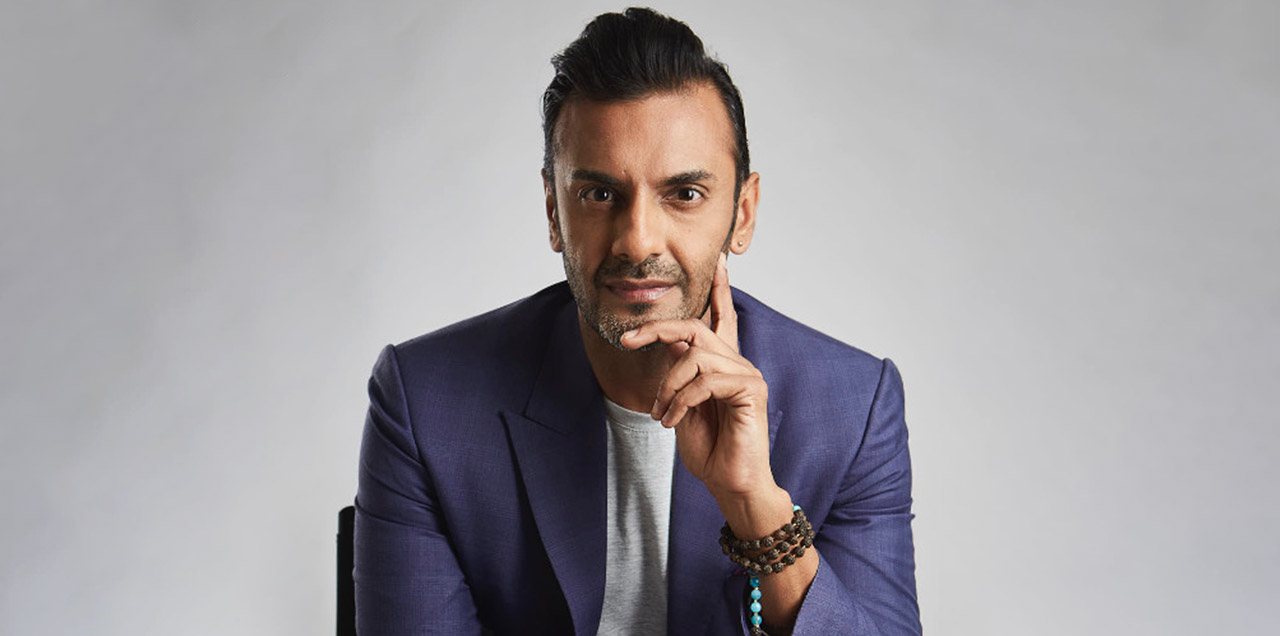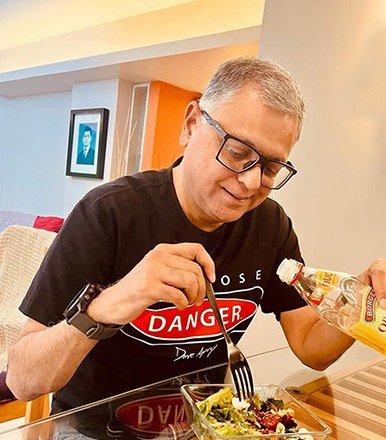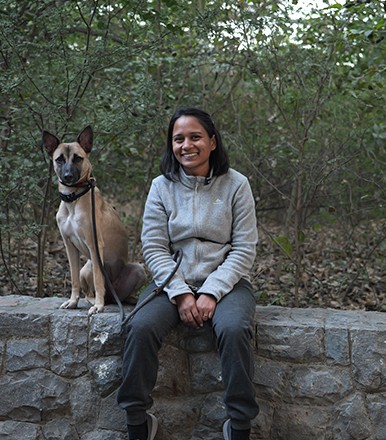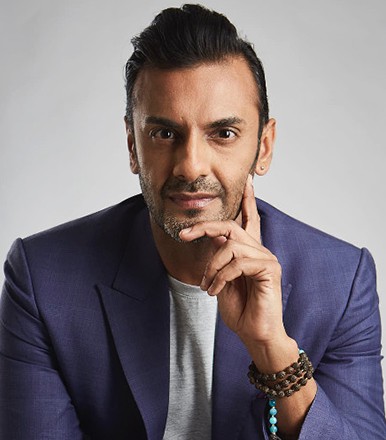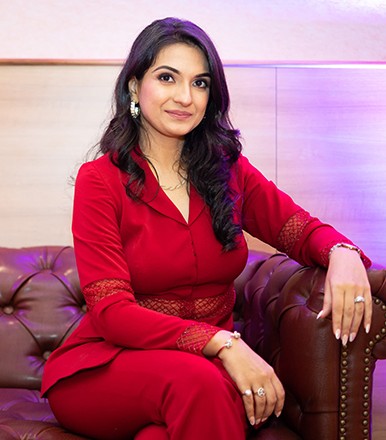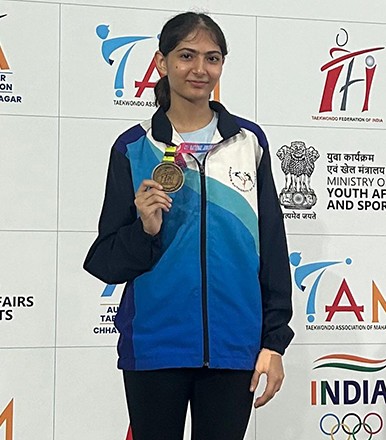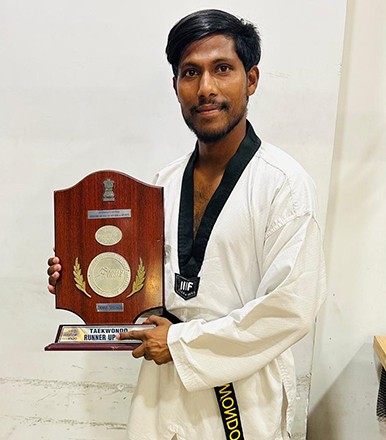We’ve all watched athletes perform remarkable feats under immense pressure, whether in stadiums or from the comfort of our screens. But what goes on behind the scenes? How do these elite athletes prepare physically and mentally to excel consistently, even while carrying the weight of millions of expectations?
To uncover the answers, HFM spoke with Shyamal Vallabhjee, a renowned sports scientist and EQ consultant who has spent over a decade helping top athletes master both their minds and bodies. So, read along to learn more about how these champions prepare for greatness.
From Cricket Dreams to Coaching Realities
Many who know Shyamal Vallabhjee, whether through his social media handle or presence in the various sports camps, are only aware of his coaching side. Perhaps very few who know him are aware that he, too, was once an aspiring sportsman looking to make it big in the world of cricket.
Born and raised in South Africa, Shyamal aspired to become a cricketer. However, his dreams were marred by apartheid in the country. Owing to his skin color, he had only limited opportunities to explore this field, but he didn’t let them stop him. Instead, he turned these challenges to his advantage.
Turning his back on the sport as a player, he decided to explore coaching roles. This decision was backed by his passion for sports science. Embracing technology and the power of mindset, he built a unique philosophy. “Growing up in apartheid South Africa was a double-edged sword...that reality cultivated in me a work ethic second to none,” he reflected. This mindset became the foundation of his coaching approach.
Today, he is a revered figure in the coaching world. Shyamal is known for offering athletes innovative techniques to enhance their performance, such as mindfulness, visualization, and reframing emotions. His methods have been lauded by every sporting organization and player he has been associated with.
He believes, “When you bring a playful and creative curious mindset to any environment, everyone is comfortable, and potential can flourish.”
The Art of Focus and Managing Pressure
Having established who Shyamal Vallabhjee is, let’s dive right into the heart of the matter, which revolves around his approach to coaching high-performance athletes. Considering his association with some of the biggest names in the Indian sporting industry, we asked him how he helps these athletes maximize focus and manage pressure in high-stakes environments.
Shyamal said, “We use the principle of individuality, which means that whilst the practice is the same, the results may vary from athlete to athlete.” He further explained that the approach or technique he implies may vary from one sport to another and is also dependent on the athletes. Still, he shared a few valuable techniques that he employs while training athletes of the top order.
The first mental approach that Shyamal teaches his athletes is to remain inquisitive. He calls this concept Thinking in Questions, and he further explains that the idea behind this is to replace rigid answers, which often impose a dead-end on players' potential, eventually limiting their creativity. “Questions are rabbit holes of inquiry and the foundation of learning. They leave the door open to possibility.” Hence, asking questions keeps athletes mentally agile and allows them to respond dynamically in high-pressure moments.
In his second technique, Mindfulness and Meditation, he teaches athletes “to become comfortable with stillness.” Commentators often say that a player is in full flow or on song while playing. Shyamal believes this flow can only be achieved if a player has mastered stillness. By training athletes to find comfort in moments of stillness, he helps them control anxiety and maintain mental clarity when the stakes are high.
Learning a new skill is easy, but executing it when needed can still be a challenge. This is a challenge that top-tier athletes face as well. Therefore, Shyamal emphasizes the power of Transference: “an art that moves skills from practice into a competitive environment.” To help his athletes perform to their fullest, Shyamal employs visualization and imagery techniques that help athletes mentally rehearse their performance, allowing them to feel prepared and confident when it counts.
Lastly, there is Reframing, through which Shyamal mentally conditions athletes to transform feelings like anxiety into excitement or anger into assertiveness. This technique not only helps athletes maintain control over their mental state but also enhances their emotional resilience, ensuring that they can perform optimally under pressure.
Building Teams and Leadership in Sports
Shyamal Vallabhjee has worked with different sports, including individual sports like tennis and team sports like cricket and football. This raises the question of what approach he takes to ensure a culture of excellence is fostered among players while building teams.
Shyamal replied, “A culture of excellence centers around four pillars: clear goals, mutual accountability, complementary skills, and strong leadership.” Among all these, leadership remains the cornerstone of a successful team. Focusing on creating a psychologically safe environment where athletes feel heard, valued, and respected. According to him, “Every person in your team wants to be understood, seen, and treated fairly.”
Talking examples from his real-life experience, Shyamal narrates the tale of India’s 2003 Cricket World Cup squad. There, he witnessed how leaders like Saurav Ganguly and John Wright empowered junior players, fostering a culture where each team member, regardless of rank, contributed to the team’s collective goals.
“They created an environment in which the juniors were empowered, with Zaheer Khan as the bowling captain, Yuvraj Singh as the batting captain, and Mohammad Kaif as the fielding captain. Over and above the senior stars, these juniors were empowered to hold the senior players accountable and vice versa.”
This horizontal accountability distinguishes good teams from great ones, ensuring that everyone holds each other to high standards.
To ensure the growth of every individual, he employs a key exercise called “You Me We” for building an elite team. You emphasize appreciation and acknowledgment of teammates by mentioning what you admire in an individual. The Me segment reflects on personal contribution and areas for improvement. This introspection fosters accountability, allowing individuals to take ownership of their roles in the team. We are the final component, which focuses largely on collective learning and growth. During this part of the exercise, teammates collaborate to discuss insights and strategies for the future. This framework encourages teammates to appreciate one another, reflect on personal growth, and set collective improvement goals.
Beyond his coaching expertise, he founded HEAL—a sports medicine and high-performance institute that revolutionized physiotherapy and non-surgical rehabilitation in India. HEAL's focus on raising standards in sports science and athlete care is a testament to Shyamal's commitment to excellence.
His philosophy transcends physicality, advocating for mental resilience, leadership, and teamwork. Through frameworks like "YOU ME WE", Shyamal teaches athletes and teams to thrive in high-pressure environments. This holistic approach has helped shape some of the finest sports teams and athletes worldwide, ensuring their physical training and emotional intelligence align for long-term success.
In the fast-evolving world of sports, his insights have proven invaluable. He serves as a bridge between performance on the field and preparation behind the scenes. Shyamal's influence continues to inspire the next generation of athletes and coaches alike.




